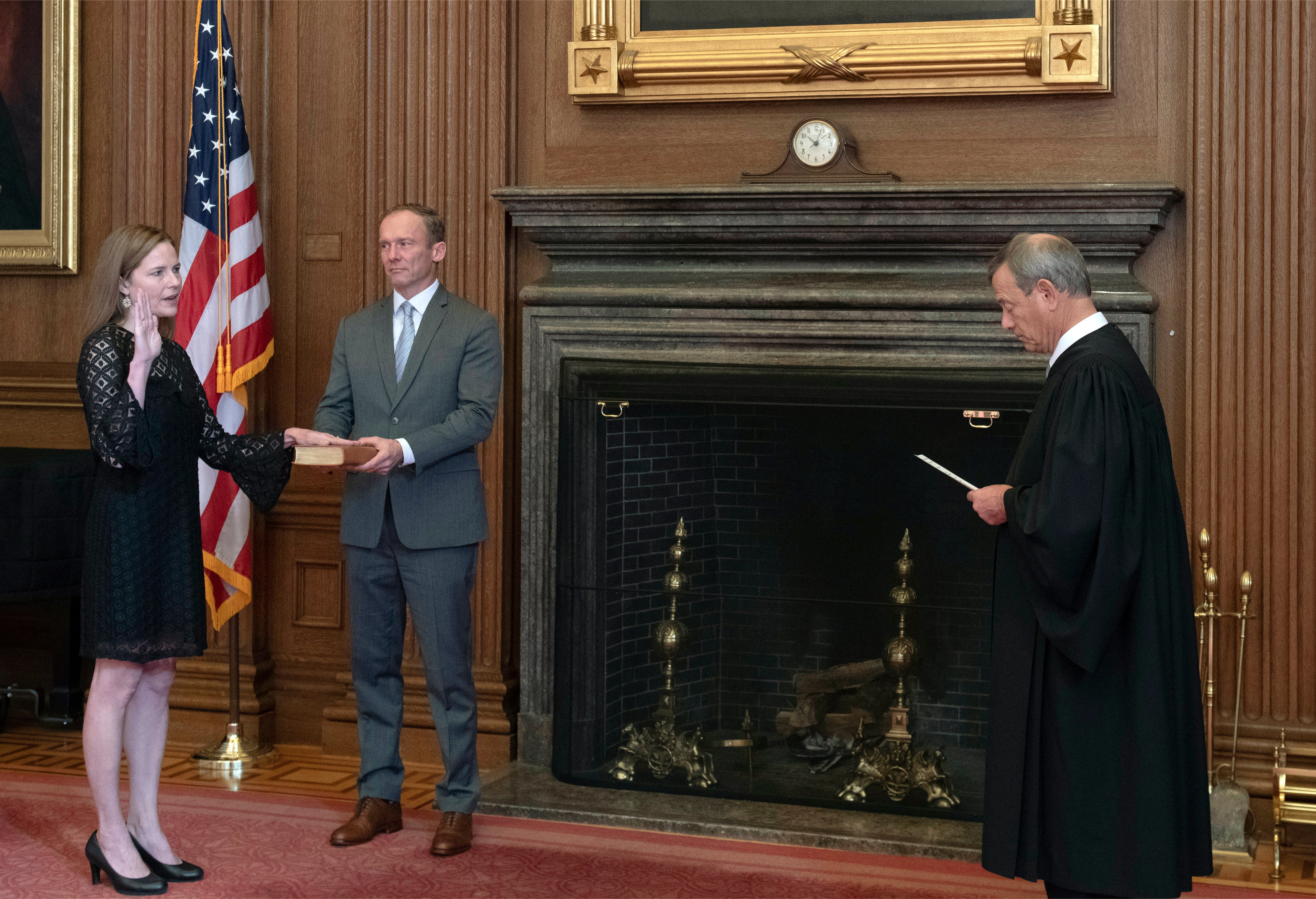Barrett to join Supreme Court arguments for the first time
Justice Amy Coney Barrett is expected to join her colleagues on the Supreme Court on Monday to hear arguments for the first time

Your support helps us to tell the story
From reproductive rights to climate change to Big Tech, The Independent is on the ground when the story is developing. Whether it's investigating the financials of Elon Musk's pro-Trump PAC or producing our latest documentary, 'The A Word', which shines a light on the American women fighting for reproductive rights, we know how important it is to parse out the facts from the messaging.
At such a critical moment in US history, we need reporters on the ground. Your donation allows us to keep sending journalists to speak to both sides of the story.
The Independent is trusted by Americans across the entire political spectrum. And unlike many other quality news outlets, we choose not to lock Americans out of our reporting and analysis with paywalls. We believe quality journalism should be available to everyone, paid for by those who can afford it.
Your support makes all the difference.Justice Amy Coney Barrett is expected to join her Supreme Court colleagues on Monday to hear arguments for the first time
Because of the coronavirus pandemic, the high court began hearing cases by phone in May. That means the public won't see the new justice, but they'll be able to hear her if she asks questions, as all her colleagues have been doing. Also because of the pandemic, the court has been allowing the public to listen to arguments in real time, a change from the past.
Participating in oral arguments will be among the first things Barrett will do after being confirmed last week in a 52-48 virtual party-line vote, with Republicans overpowering Democrats to install President Donald Trump's third Supreme Court nominee.
She did not participate in decisions the high court issued last week involving extended timelines for receiving and counting ballots in Pennsylvania and North Carolina because of the need for a quick resolution and "because she has not had time to fully review the parties’ filings,” the court's spokeswoman said in a statement. But her vote also wouldn't have changed the outcome in either case.
The two cases Barrett will hear Monday are relatively low-profile, a dispute involving the Freedom of Information Act and another involving disability benefits for railroad employees. On Tuesday, however, as the country finishes voting, the court's cases include one about sentencing young people to life without parole. And on Wednesday, the day after Election Day, the court hears a case that involves a clash of LGBTQ rights and religious freedoms in a major swing state, Pennsylvania.
Next week brings a case that could threaten the Affordable Care Act, one that was front and center during Barrett's confirmation hearings last month. Democrats claimed that the Obama-era health law, known as “Obamacare,” would be in jeopardy if Barrett joined the court. Trump has urged the court to overturn the law.
The justices have said they will continue to hear cases by phone through at least December. So it’s unclear when Barrett will move in to her offices at the court, taking over the space of her predecessor, Justice Ruth Bader Ginsburg.
On Monday, Chief Justice John Roberts is expected to offer a traditional, short welcome, to Barrett before arguments begin, wishing her “a long and happy career in our common calling.” And the court will have a typical two hours of argument in two cases.
The pandemic has upended other traditions. If the justices were in their courtroom, Barrett would join her colleagues in a round of handshakes before taking the bench, a tradition every time the justices meet for argument or their private conference that was suspended months ago because of the pandemic. Spectators would see her emerge from behind the court's red curtains and take a seat on the far right hand side of the bench, the junior-most justice's seat. She would be seated next to Justice Neil Gorsuch, Trump's first nominee to the court.
And while arguments in the courtroom are a free-for-all, with justices constantly jumping in with questions, the court's phone-arguments are more orderly. Each justice gets to ask each lawyer questions in order of seniority. As the junior justice, Barrett will ask her questions last.